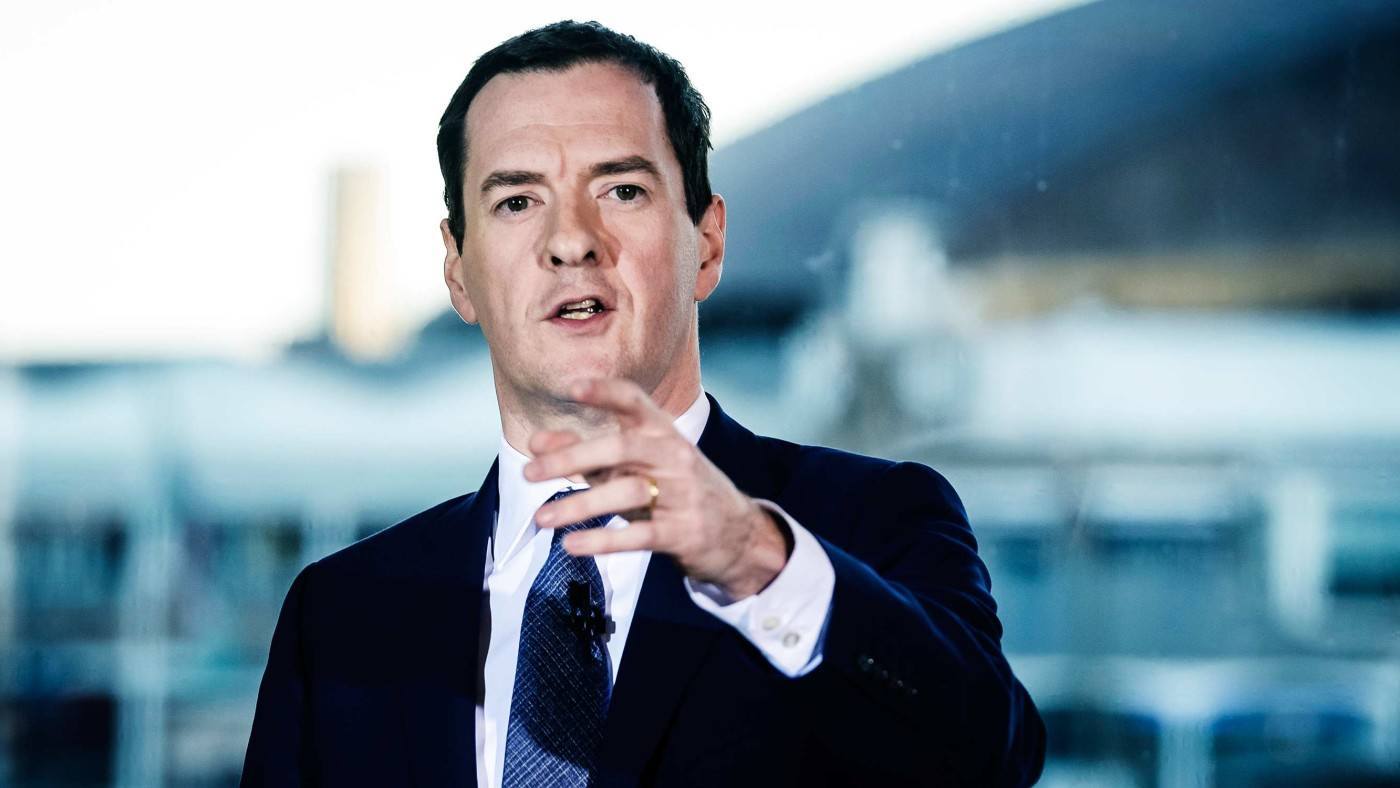The EU referendum will be a “once-in-a-lifetime decision” for the people of the UK, the Chancellor George Osborne has said.
These great words of wisdom were handed down from the heady heights of one of the great offices of state in a bid to remind us ordinary voters not to get that decision wrong.
The wrong decision, in Mr Osborne’s mind, would of course be a vote to leave the EU.
The Chancellor told BBC’s Newsnight it was “unrealistic” to assume the poll – expected to be held later this year – would be repeated again in the foreseeable future.
“I think anyone who votes out on the assumption that a year or two later you can have another vote to vote back in… is being unrealistic about the nature of the choice,” he explained. “And I think it’s really important that the British people focus on the fact this is the once-in-a-lifetime decision.”
In fact, what is really important is that, if it was up to George Osborne, this would not be a once-in-a-lifetime decision. It would be a never-in-a-lifetime decision since (despite his self-professed Euroscepticism) there is no circumstance in which the Chancellor would ever vote to leave the EU.
Indeed, if it were up to David Cameron, or most of his Cabinet, or the Labour leadership, past or present, the Liberal Democrats, the SNP, Plaid Cymru or the Greens, we wouldn’t be having an EU referendum in the first place.
The only reason we are having one is that Mr Cameron feared Eurosceptic Tories would desert the party for UKIP in their droves and believed (as it turned out, quite rightly) that a promise of a guaranteed referendum would be enough to convince them to stay.
If there had been any conceivable way to worm out of that commitment, Mr Cameron would have found it by now.
Instead, after a catastrophically bad year for the EU thanks to the handling of the Syrian refugee crisis, the Prime Minister and the Chancellor now face a referendum vote that is, if we are to believe the polls, sitting on a knife-edge.
Hence we have the second most powerful man in the country telling ordinary voters, who can’t be trusted to make difficult decisions about complicated things like our relationship with Europe, that they mustn’t make the wrong decision.
Does Mr Osborne honestly believe that Britons voting to leave the EU will do so in the expectation that they can change their minds in a few years’ time? And if so, why does he think they will want to change their minds when trade and business is booming in a vibrant economy freed from the deadweight of Brussels?
Does he really think eurosceptic voters will suddenly change their minds and decide that, no, actually they don’t really like the idea of democratic accountability and national sovereignty after all?
When George Osborne says this EU referendum will be a once-in-a-generation opportunity, he is quite wrong.
If British voters opt to leave, the Europhile-dominated political classes of this country will ensure that another vote is held before we sign on the dotted line – just as has been done in almost every other EU country where voters have made the “wrong” decision, until they make the “right” one, as the good folk of Ireland can testify.
And if British voters opt to stay in the EU as it is now (after a little cosmetic tinkering from David Cameron’s “reforms”), what then?
Does a vote in 2016 or 2017 stand for all time, no matter what happens? Is Mr Osborne saying that, in the event that the rest of Europe, led by Germany and France, decides to push forward with even greater political and economic integration, British voters will be denied another chance to have their say?
This referendum was not a gift bestowed from politicians. It was a political necessity for the Tories to win the last general election and it was one that was hard fought for by ordinary voters angry that their rights and the powers of the British Parliament were handed over to Brussels without their permission.
So, thanks for your advice, Chancellor, but you seem to have forgotten this funny little thing we call democracy.
I think you’ll find that whether we vote to remain or leave, it will be the people of Britain who get to decide if and when we hold another referendum, not you.


